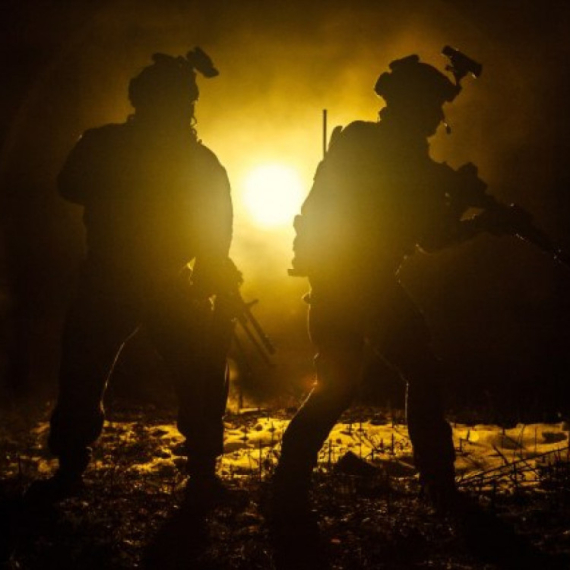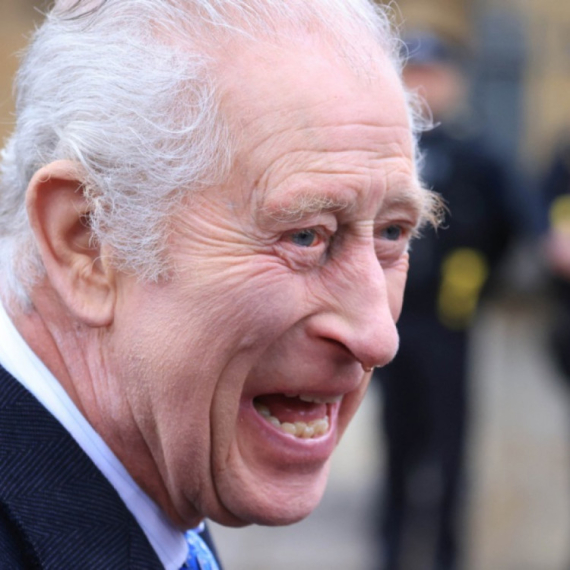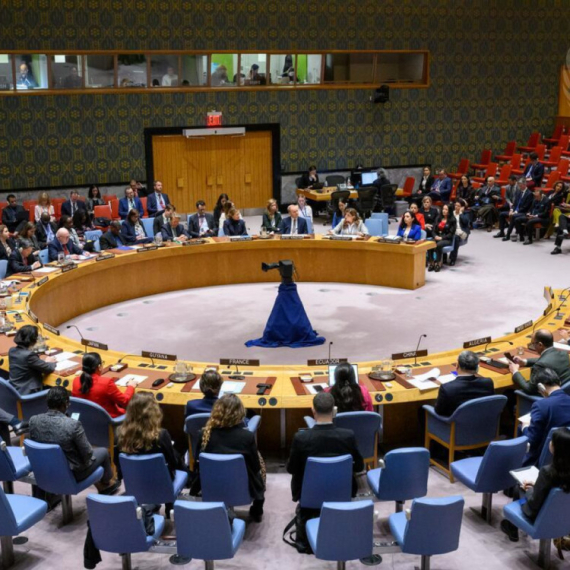Koštunica talks Hague, new cabinet, Caucasus
Vojislav Koštunica says no negotiations were conducted with Ratko Mladić during his tenure as prime minister.
Sunday, 07.09.2008.
12:57

Vojislav Kostunica says no negotiations were conducted with Ratko Mladic during his tenure as prime minister. The DSS leader told daily Politika's Sunday issue in an interview that he was unaware of the whereabouts of Hague indictees Stojan Zupljanin and Radovan Karadzic, who have in the meantime been arrested and extradited to the Hague Tribunal. Kostunica talks Hague, new cabinet, Caucasus Kostunica also denied that he ever attempted to talk Mladic into surrendering. "This was not possible, because we did not know where he was," the former prime minister explained. But he told the newspaper the moment was right for Serbia to bring up the issue of the Hague court's legitimacy in its discussions with the EU. Kostunica also said that he never regretted returning his premiership mandate, a move which in March collapsed his government and led to the snap parliamentary elections in May. "I would regret it only if I had renounced the policy that I stood for," he said. "The elections led to an unusual situation where we have a government for which no one really voted. If you take each of the parties that make up this government, you can be sure that none of their voters cast their ballots to see it composed the way it has been composed," Kostunica continued. He described the Cvetkovic cabinet as lacking political legitimacy, moral authority and for those reasons, being without inner strength. "On the other hand, I am pleased that I have in no way made any concessions when it comes to the essence of the policy I stood for, above all the persistent effort to preserve something that represents not only the basis of the state we live in, but should also represent the basis of international legal order. It is the principle of territorial integrity and sovereignty of each state," the DSS leader said. The recent crisis in Georgia and South Ossetia has demonstrated how justified that policy had been, Kostunica continued, with sound legal arguments, at the same time demonstrating that Serbia's case is not and cannot be unique in this world, but has, on the contrary, become a precedent for other crises. "We have been right about all that, and naturally I could not imagine a situation where I would renounce the principled policy of the defense of the state and national interests," he said. Kostunica went on to explain that Russia defended an international peace agreement dating back to 1992 in Georgia. "Her citizens in South Ossetia were in danger, her peacekeepers as well. All this came after the Kosovo precedent occurred, when EU and Washington said, 'We'll just break international law once, when it comes to Serbia. Serbia is a unique case'." "Therefore, Russia, just like Serbia, insisted to the end on respect of international law. Serbia fought in her won way, Russia in hers, but on the other side, we have a country which has placed force above law. That’s the main problem, while it is up to Russia to use the means seen as appropriate, after all the other means have been exhausted," he said. Serbia should continue to cooperate with Russia, without jeopardizing other forms of cooperation, economic above all, with the EU and the United States, the DSS leader added. "It is regrettable that the EU is to all intents and purposes at the same time working to break up Serbia's territorial integrity and sovereignty, and insisting on respect of Georgia's territorial integrity and sovereignty. Such flawed policy can only serve to deepen the crisis, and undermine international order," Kostunica concluded.
Koštunica talks Hague, new cabinet, Caucasus
Koštunica also denied that he ever attempted to talk Mladić into surrendering."This was not possible, because we did not know where he was," the former prime minister explained.
But he told the newspaper the moment was right for Serbia to bring up the issue of the Hague court's legitimacy in its discussions with the EU.
Koštunica also said that he never regretted returning his premiership mandate, a move which in March collapsed his government and led to the snap parliamentary elections in May.
"I would regret it only if I had renounced the policy that I stood for," he said.
"The elections led to an unusual situation where we have a government for which no one really voted. If you take each of the parties that make up this government, you can be sure that none of their voters cast their ballots to see it composed the way it has been composed," Koštunica continued.
He described the Cvetković cabinet as lacking political legitimacy, moral authority and for those reasons, being without inner strength.
"On the other hand, I am pleased that I have in no way made any concessions when it comes to the essence of the policy I stood for, above all the persistent effort to preserve something that represents not only the basis of the state we live in, but should also represent the basis of international legal order. It is the principle of territorial integrity and sovereignty of each state," the DSS leader said.
The recent crisis in Georgia and South Ossetia has demonstrated how justified that policy had been, Koštunica continued, with sound legal arguments, at the same time demonstrating that Serbia's case is not and cannot be unique in this world, but has, on the contrary, become a precedent for other crises.
"We have been right about all that, and naturally I could not imagine a situation where I would renounce the principled policy of the defense of the state and national interests," he said.
Koštunica went on to explain that Russia defended an international peace agreement dating back to 1992 in Georgia. "Her citizens in South Ossetia were in danger, her peacekeepers as well. All this came after the Kosovo precedent occurred, when EU and Washington said, 'We'll just break international law once, when it comes to Serbia. Serbia is a unique case'."
"Therefore, Russia, just like Serbia, insisted to the end on respect of international law. Serbia fought in her won way, Russia in hers, but on the other side, we have a country which has placed force above law. That’s the main problem, while it is up to Russia to use the means seen as appropriate, after all the other means have been exhausted," he said.
Serbia should continue to cooperate with Russia, without jeopardizing other forms of cooperation, economic above all, with the EU and the United States, the DSS leader added.
"It is regrettable that the EU is to all intents and purposes at the same time working to break up Serbia's territorial integrity and sovereignty, and insisting on respect of Georgia's territorial integrity and sovereignty. Such flawed policy can only serve to deepen the crisis, and undermine international order," Koštunica concluded.























































Komentari 14
Pogledaj komentare